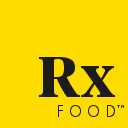GI symptoms and Nutrition
GI symptoms can be extremely bothersome. Although diet isn’t everything, it can impact many symptoms.
Irritable Bowel Syndrome (learn more here and here):
FODMAP diet may help. You can learn more here
Eating a healthy, balanced diet.
Eating more high-fiber foods such as whole grains, fruits, and vegetables (especially for people with constipation). Add foods with fiber to your diet a little at a time to let your body get used to them. High-fiber diets may not help with pain or diarrhea, and may make gas and cramping worse. Check the information on foods such as cereals. You should aim to eat 20 grams of fiber per day.
Drinking 6 to 8 glasses of water a day (especially for people with diarrhea). It is unclear whether this helps IBS symptoms, but it can help treat dehydration that sometimes happens with diarrhea.
Avoiding large meals, which can cause cramping and diarrhea in people with IBS. If this happens to you, try eating 4 or 5 small meals a day. Or, eat less at each of your usual 3 meals.
Constipation:
target high fibre foods like:
whole grains, such as whole wheat bread and pasta, oatmeal, and bran flake cereals
legumes, such as lentils, black beans, kidney beans, soybeans, and chickpeas
fruits, such as berries, apples with the skin on, oranges, and pears
vegetables, such as carrots, broccoli, green peas, and collard greens
nuts, such as almonds, peanuts, and pecans
Drink water
Be cautious with processed foods and low fibre foods
Reflux:
Foods high in fats, salt, or spice can worsen symptoms
Avoid eating late at night
Alkaline water can help
Read more here
